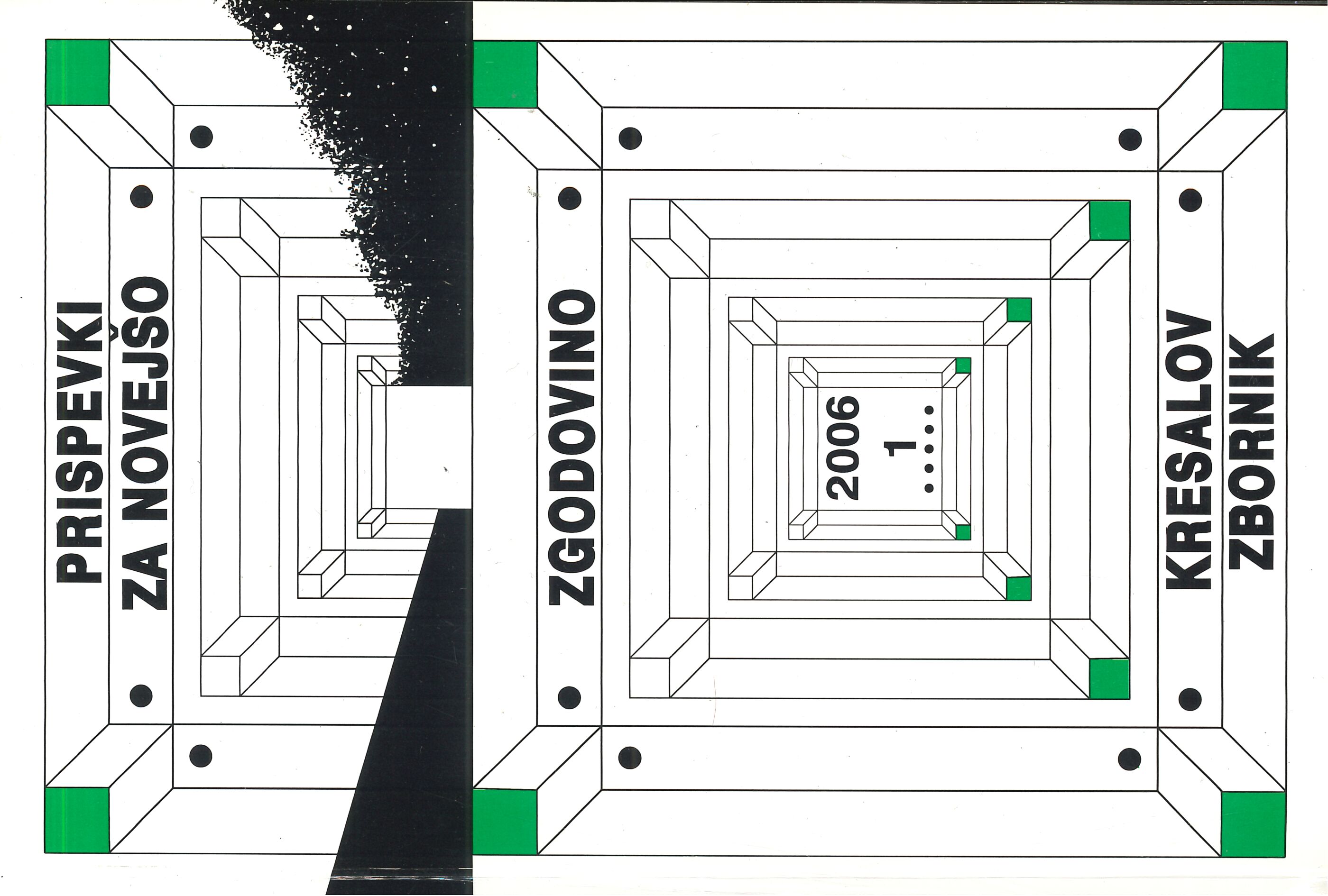Slovene Liberals and the National Question between 1931 and 1933
Keywords:
Kingdom of Yugoslavia, King Alexander's dictatorship, Yugoslavism, national question, Slovenism, unitarism, Yugoslav National Party, Yugoslav Radical Peasant Democracy, Liberalism, Ljubljana PunctuationsAbstract
The prevailing political orientation among the Liberals between 1931 and 1933 was that of Yugoslav unitarism. This orientation was supported by the Yugoslav Radical Peasant Democracy (YRPD), in which the Slovene Liberals had been politically organized since 1932. The YRPD was the only political party tolerated by the royal dictatorship introduced on 6 January 1929. In mid 1932, the party sharply reacted to the book Kulturni problem slovenstva (The Cultural Problem of Slovene Identity) by Josip Vidmar, a literary critic of liberal orientation. In his book, Vidmar had attacked the Liberals for their political view that Slovene national awareness was overstrained, forced and anti-state. Vidmar was supported by a group of prominent cultural figures who, in 1933, had founded their own journal Sodobnost (Modernity) and established the view among the majority of the Slovene Liberal intelligentsia that the loss of Slovene identity was detrimental and suicidal. Meanwhile, the Slovene faction of the YRPD strengthened its unitarist principles. In early 1933, Vidmar took a tough stand against the so-called Ljubljana Punctuations, a federalist constitutional programme shaped by the leadership of the abolished, Catholic-orientated, Slovene People's Party (SPP); the most prominent leaders of the former SPP were confined in different parts of the country because of the Punctuations. Unhesitatingly, the Liberals supported the unitarist national programme of the new Yugoslav National Party (YNP), into which the YRPD transformed on 20 July 1933. In the YNP, they occupied several leading positions. The political situation in the country at the time indicated that the future only favoured Yugoslav unitarism. It was with this conviction that Slovene Liberals entered in the period that followed the foundation of the YNP.
Downloads
Published
Issue
Section
License
Authors who publish with this journal agree to the following terms:
- Authors retain copyright and grant the journal right of first publication with the work simultaneously licensed under a Creative Commons Attribution License that allows others to share the work with an acknowledgement of the work's authorship and initial publication in this journal.
- Authors are able to enter into separate, additional contractual arrangements for the non-exclusive distribution of the journal's published version of the work (e.g., post it to an institutional repository or publish it in a book), with an acknowledgement of its initial publication in this journal.
- Authors are permitted and encouraged to post their work online (e.g., in institutional repositories or on their website) prior to and during the submission process, as it can lead to productive exchanges, as well as earlier and greater citation of published work (See The Effect of Open Access).


